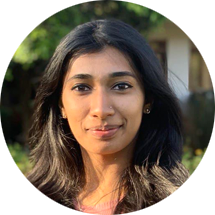Offered Majors
The Psychology, Political Science and Sociology (PPS) majors give you a holistic, multi-disciplinary, and integrated approach to the study of phenomena in the social sciences and produces graduates for careers in the human services fields, education, management, and other analytical and social-intensive professions. Students may choose to major in one of three disciplines.
Alternatively, you may choose the Politics, Law and Economics (PLE) major which offers a robust multidisciplinary academic foundation, coupled with opportunities to apply multi-disciplinary contributions to develop solutions or improve complex problems. Graduates would be well-equipped with the knowledge and skills to handle multifaceted jobs in their chosen fields of public service, non-government organisations or private sector.
Students may choose to declare a second major in another social science discipline (Political Science, Psychology, or Sociology) or in one of the many second majors offered by SMU undergraduate schools. The School of Social Sciences offers four multidisciplinary second majors.
|
The Politics, Law and Economics major is designed to prepare future leaders and thinkers with a deep understanding of global political and economic transformations, and the legal frameworks and contexts within which such changes take place. Comprising integrative courses in the fields of politics, law and economics that will hone your strategic and analytical thinking skills, you will be empowered to seek innovative solutions to real world problems. Take a look at our Politics, Law and Economics Curriculum. |
|
Political Science addresses important questions — how politics and policy develop and are conducted, the impact of citizen participation, and how these affect ordinary citizens. You will master key concepts used in the study of politics and policy, as well as develop research skills relevant to all major subfields in political science – comparative politics, international relations, political theory, and political economy. Take a look at our Political Science Curriculum. |
|
Psychology is the scientific study of behaviour and mental processes. Psychological theories and research can be applied in various sectors including education, public policy and business. Psychology majors will be competent in conducting empirical research in private and public sectors, and have a good understanding of the main pillars in psychological research, including social, organisational, personality, and cognitive psychology. Take a look at our Psychology Curriculum. |
Sociology is the study of the social: of broad societal patterns like population changes and resource inequalities, of how our behaviours and beliefs are shaped by structures like social norms and material constraints, and of how people and groups interact with one another. You will learn systematic frameworks for analysing and addressing social problems, acquire literacy in evaluating qualitative and quantitative research, and discover just how much we can take for granted. Take a look at our Sociology Curriculum. |
| Global Asia (GA) is an area-focused interdisciplinary second major committed to social science scholarship that studies contemporary Asia within a global context. The programme integrates knowledge from various fields including international relations, sociology, political science, economics, law, and cultural studies. Designed to accommodate students from diverse degree programmes, GA equips students with the necessary skills to navigate Asia’s changing social, economic, and geopolitical terrains. It is ideal for students who want supplement their studies with specialised knowledge about Asia. A special feature of GA is a compulsory ‘Engaging the Field’ component where students must complete either a study mission to an Asian country or an intensive independent project on an aspect of Asia’s diverse societies. GA also embeds activities enriched with partner organisation collaborations, special internships with international organizations and NGOs, and joint programs/partnership arrangements with leading universities in East and Southeast Asia. Take a look at our Global Asia Curriculum.
What do our students have to say about the major?
|
| The Public Policy and Public Management (PPPM) second major is designed to provide students with a definitive grasp of public policy topics. It primes students for future careers that require an exposure to national and international policy-relevant subject matters and a firm grasp of public sector relevant skills. It also builds students’ knowledge and expertise on topics related to contemporary global governance. PPPM develops students’ critical thinking and problem-solving skills that are relevant to modern social dilemmas and growing public concerns such as climate change, poverty and disease, while also providing students with a foundational understanding of public and non-profit workplaces and their political, psychological, and legal environments. A key feature of PPPM is the Public Policy Task Force Programme that applies academia to real policy problems, where students engage in collaborative, client-oriented, and problem-solving projects on critical public policy and management issues. Take a look at our Public Policy and Public Management Curriculum. What do our students have to say about the major?
|
| Inspired by the United Nations Sustainable Development Goals (SDGs), the Sustainable Societies (SS) second major instills an appreciation and sense of urgency about the complexities, trade-offs, and synergies that sustainability presents for the people and the planet that we inhabit. The SS major’s three main pillars – environment, society and the economy – mirror the realities and challenges of sustainable development of today and the future. With emphasis on problem-solving perspectives and capabilities, and interdisciplinarity, the SS major aims to develop in students skillsets for current and future ‘green’ jobs across industries and sectors. Take a look at our Sustainable Societies Curriculum. Here are some examples of the electives available:
|










